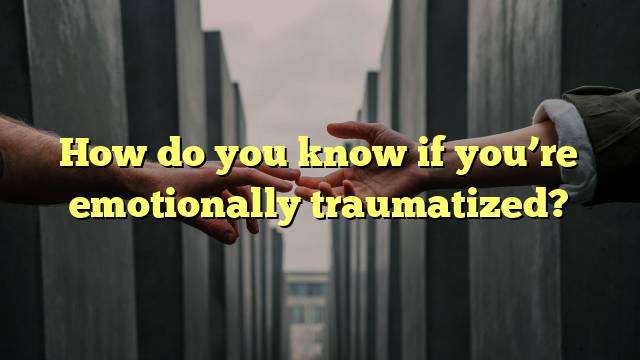What is Emotional Trauma?
Emotional trauma is a response to a deeply distressing or disturbing event that overwhelms an individual’s ability to cope and leaves them feeling helpless, vulnerable and overwhelmed. It can occur as a result of a single event or a series of events, and can be anything from a natural disaster to a violent attack, a car accident, a death in the family, a divorce, or any other life-altering event.
Signs and Symptoms of Emotional Trauma
Emotional trauma can manifest itself in both physical and psychological symptoms, and the signs and symptoms may vary from person to person. Common signs and symptoms of emotional trauma include:
- Intense fear and/or anxiety
- Depression
- Flashbacks and intrusive thoughts
- Difficulty sleeping or concentrating
- Irritability, agitation, or outbursts of anger
- Hypervigilance
- Physical symptoms, such as headaches and stomachaches
It is important to note that these symptoms can vary widely from person to person, and may not all be present at the same time. Additionally, some people may experience more severe symptoms than others.
How to Recognize if You Have Been Emotionally Traumatized
It is not always easy to recognize if you have been emotionally traumatized, as the symptoms can be subtle or even absent. However, there are some key signs to look out for:
- Persistent feelings of distress, anxiety, and/or fear
- Intrusive memories and flashbacks
- Avoidance of activities or places that remind you of the traumatic event(s)
- Difficulty concentrating
- Changes in your behavior, such as becoming more aggressive or withdrawn
- Relationship problems
- Feelings of guilt, shame, or self-blame
- Physical symptoms, such as headaches or stomachaches
If you are experiencing any of these symptoms, it is important to seek help from a mental health professional. A therapist or psychologist can help you to process your experiences and work through the emotional trauma.
How to Cope with Emotional Trauma
Dealing with emotional trauma can be a challenging and overwhelming process, but there are strategies that can help. It is important to remember that healing is a process, and it may take some time before you start to feel better. Here are some strategies to help you cope with emotional trauma:
- Seek professional help: A mental health professional can help you to process your experiences and work through any painful emotions. It is important to find a therapist who is experienced in treating trauma and understands your needs.
- Practice self-care: Taking care of your physical and mental health is essential for dealing with emotional trauma. This includes getting enough sleep, eating a balanced diet, exercising regularly, and taking time for yourself to relax and unwind.
- Talk to someone: Talking to someone you trust, such as a friend or family member, can help to process your experiences and provide emotional support. You may also find it helpful to talk to other people who have experienced similar trauma.
- Process your emotions: Writing about your experiences in a journal or talking to a therapist can help to process your emotions and make sense of what has happened.
- Practice mindfulness: Mindfulness involves paying attention to the present moment without judgment. It can help to reduce stress and anxiety and provide a sense of calm.
- Find healthy outlets: Participating in activities that you enjoy, such as art, music, or sports, can help to reduce stress and provide a sense of purpose.
Recovering from emotional trauma can be a difficult and challenging process, but with the right support and strategies, it is possible to heal and move forward. If you are experiencing symptoms of emotional trauma, it is important to seek help from a mental health professional.



